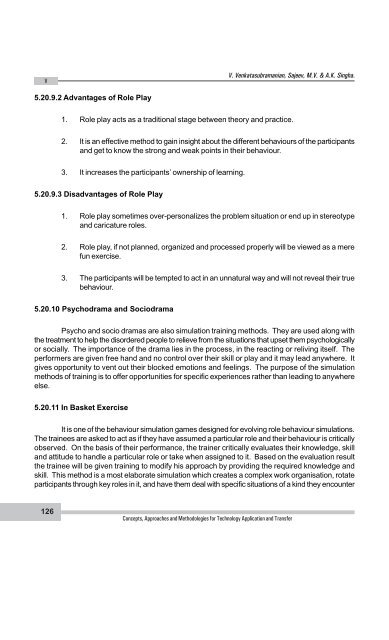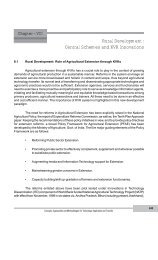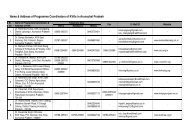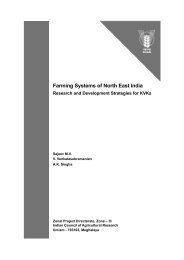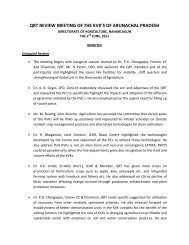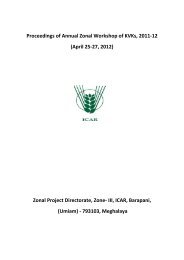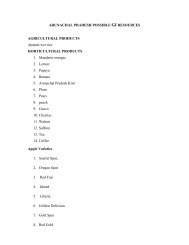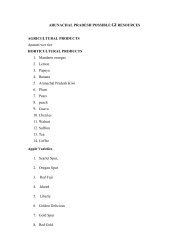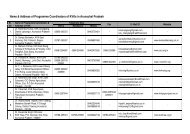Training Methodology for KVK Scientists - ICAR, Zonal Project ...
Training Methodology for KVK Scientists - ICAR, Zonal Project ...
Training Methodology for KVK Scientists - ICAR, Zonal Project ...
You also want an ePaper? Increase the reach of your titles
YUMPU automatically turns print PDFs into web optimized ePapers that Google loves.
V<br />
V. Venkatasubramanian, Sajeev, M.V. & A.K. Singha.<br />
5.20.9.2 Advantages of Role Play<br />
1. Role play acts as a traditional stage between theory and practice.<br />
2. It is an effective method to gain insight about the different behaviours of the participants<br />
and get to know the strong and weak points in their behaviour.<br />
3. It increases the participants’ ownership of learning.<br />
5.20.9.3 Disadvantages of Role Play<br />
1. Role play sometimes over-personalizes the problem situation or end up in stereotype<br />
and caricature roles.<br />
2. Role play, if not planned, organized and processed properly will be viewed as a mere<br />
fun exercise.<br />
3. The participants will be tempted to act in an unnatural way and will not reveal their true<br />
behaviour.<br />
5.20.10 Psychodrama and Sociodrama<br />
Psycho and socio dramas are also simulation training methods. They are used along with<br />
the treatment to help the disordered people to relieve from the situations that upset them psychologically<br />
or socially. The importance of the drama lies in the process, in the reacting or reliving itself. The<br />
per<strong>for</strong>mers are given free hand and no control over their skill or play and it may lead anywhere. It<br />
gives opportunity to vent out their blocked emotions and feelings. The purpose of the simulation<br />
methods of training is to offer opportunities <strong>for</strong> specific experiences rather than leading to anywhere<br />
else.<br />
5.20.11 In Basket Exercise<br />
It is one of the behaviour simulation games designed <strong>for</strong> evolving role behaviour simulations.<br />
The trainees are asked to act as if they have assumed a particular role and their behaviour is critically<br />
observed. On the basis of their per<strong>for</strong>mance, the trainer critically evaluates their knowledge, skill<br />
and attitude to handle a particular role or take when assigned to it. Based on the evaluation result<br />
the trainee will be given training to modify his approach by providing the required knowledge and<br />
skill. This method is a most elaborate simulation which creates a complex work organisation, rotate<br />
participants through key roles in it, and have them deal with specific situations of a kind they encounter<br />
126<br />
Concepts, Approaches and Methodologies <strong>for</strong> Technology Application and Transfer


